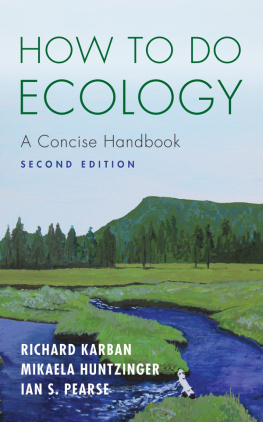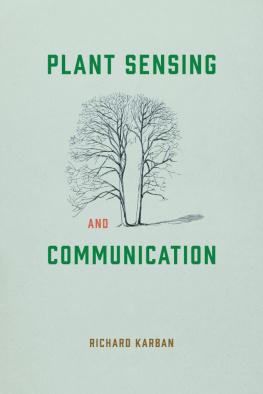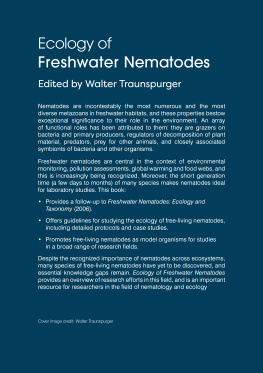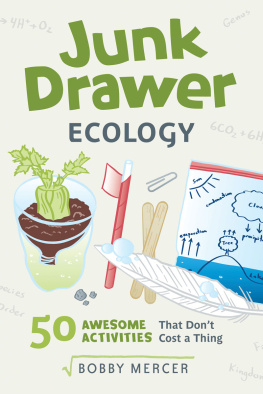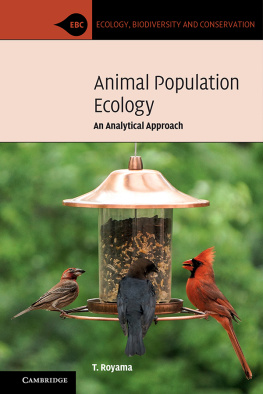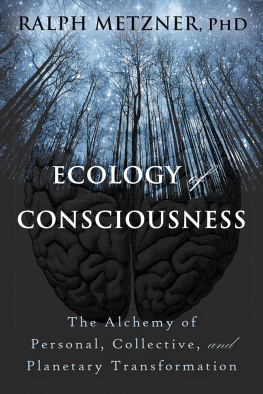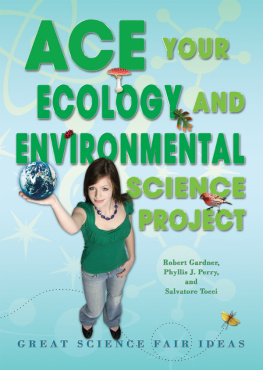
How to Do Ecology
How to Do Ecology
A Concise Handbook
SECOND EDITION
Richard Karban
Mikaela Huntzinger
Ian S. Pearse
Princeton University Press
Princeton and Oxford
Copyright 2014 by Princeton University Press
Published by Princeton University Press,
41 William Street, Princeton, New Jersey 08540
In the United Kingdom: Princeton University
Press, 6 Oxford Street, Woodstock,
Oxfordshire OX20 1TW
press.princeton.edu
Cover art by Richard Karban, from a photo by Kaori Shiojiri; Sagehen Creek, California
All Rights Reserved
ISBN 9780691161761
Library of Congress Control Number: 2014934363
British Library Cataloging-in-Publication
Data is available
This book has been composed in ITC New Baskerville
Printed on acid-free paper
Printed in the United States of America
10 9 8 7 6 5 4 3 2 1
Contents
Illustrations
Boxes
Preface to the Second Edition
This book started out as handouts for Ricks graduate-level field ecology course. At first there were just a few pages, but each year the stack grew thicker. Nothing happened to these handouts for about a decade until Mikaela, in the throes of graduate school herself, suggested that they might be useful to other people. She started organizing them as a fun project (seriously?!?!) and adding new material.
We had no idea who would want to read this thing. However, we now know that most of our readers are prospective and current grad students in ecology. So we have added other advice and information that we think will be valuable to students, such as how to read more efficiently, think more creatively, and find a job in ecology. In the meantime, things have changedfor example, more ecologists are using surveys and other observational techniques to learn about nature. For the second edition, Rick and Mikaela sought out Ian to include sections about model-building techniques, analysis of surveys, and ways of dealing with spatially and phylogenetically clumped observations and other design issues, and to add his perspective throughout the book.
The move from undergrad to grad school can be a shock. What matters has changed. For one thing, the currency is different. Doing well as an undergrad involved taking classes and getting good grades. In grad school, unless you are moving from a masters to a doctoral program, grades become virtually obsolete. The currency to succeed after grad school is publications and, in some cases, grants. While you are in grad school, prioritize the things that will result in publications.
The three of us hope this book makes learning to do ecology more straightforward for you than it was for us.
Introduction:The Aims of This Book
As students of ecology, we take classes in ecological principles and ecological theory. We familiarize ourselves with the influential studies that have shaped our discipline. But rarely do we explicitly try to figure out how to do ecology ourselves. What are the skills that are required to do a good job? How can we develop them? In a nutshell, this book is an attempt to provide a concise set of suggestions for how to do ecology well. It is intended for students and practicing ecologists who are faced with developing an exciting research program.
In this handbook, we consider different ecological approaches and discuss their strengths, weaknesses, and utility. We concentrate on hypothesis testing, as this is the approach currently favored by most ecologists and the one we are most familiar with. We present some rules of thumb for how to set up experiments and how to analyze and interpret results. Many questions that ecologists are interested in answering do not lend themselves to experimental manipulation, so we also present techniques for conducting and analyzing observational surveys. Finally, we offer suggestions about working with other people, communicating what you find in scientific papers, talks, and proposals, and developing other skills that are useful for ecologists.
How to Do Ecology
CHAPTER 1
Picking a Question
Perhaps the most critical step in doing field biology is picking a question. Tragically, its the thing that you are expected to do first, when you have the least experience. For example, it helps to get into grad school if you appear to be focused on a particular set of questions that matches a professors interests. However, at this stage in most students careers, many topics sound equally interesting, so this forced focus is difficult or even painful.
The question that you pick should reflect your goals as a biologist. If you are a new grad student, your short-term goal might be nothing more than to succeed in grad school. However, its important to look farther down the road even as youre beginning. A common mid-term goal is getting your first job. For most jobsthose at research universities, small liberal arts colleges, federal agencies, nonprofit organizationssearch committees will want to see a strong record of research and publication even if you wont be expected to conduct research or publish a lot on the job.. Achieving a goal like getting a first job also demands that you build a mid-term plan for your research. For example, your plan might include solving a problem in restoration, such as how to return a particular piece of real estate to some level of ecological functioning. A more conceptual mid-term goal might involve making people rethink the interactions that are important determinants of the abundance or distribution of species.
Long-term goals are harder to formulate but are at least as important. (If you dont believe this, talk to some burnt-out researchers late in their careers. Some people never bothered to stop and figure out what they really valued and wanted to accomplish for themselves. Thinking through your big-picture, long-term goals makes doing the work more enjoyable.) Some long-term goals that you might want to try out include attempting to influence how you and others think about or practice a certain subdiscipline of biology, or how we manage a habitat or species. Such long-term goals can provide a yardstick with which to evaluate your choice of project. Your long-term goals should suit you and not necessarily your major advisor (who may consider a nonacademic career a waste of time) and not necessarily your parents (who may try to convince you that a conceptual thesis will leave you unemployable). Refer to the How to Get a Job section of to begin the difficult work of untangling your goals from theirs.
From the beginning, consider your short-, mid-, and long-term goals as you pick your research question. Push yourself to pose a question that both satisfies your goals and will be of broad interest to others. At the same time, dont let the quest for the perfect question keep you from making tangible research progress. Figure out how narrow or broad you want your research question to be. You should recognize that if you answer a very specific question, your results may be considered important by only a very small community. Academics are more likely to get enthused about a more general question. On the other hand, it is also possible to ask a question that is too general (theoretical), so you should ask yourself if your answer will reflect reality for at least one actual species. Having a model organism in mind will keep you more grounded in reality and increase the size of your audience.
Box 1.The importance of research for people who aspire to non-research careers
Even if a career in research is not part of your long-term goals, it is still worth throwing yourself into the world of research while you work on your degree. The process of doing research will give you insights into ecology that are extremely difficult to get anywhere else.
Next page
